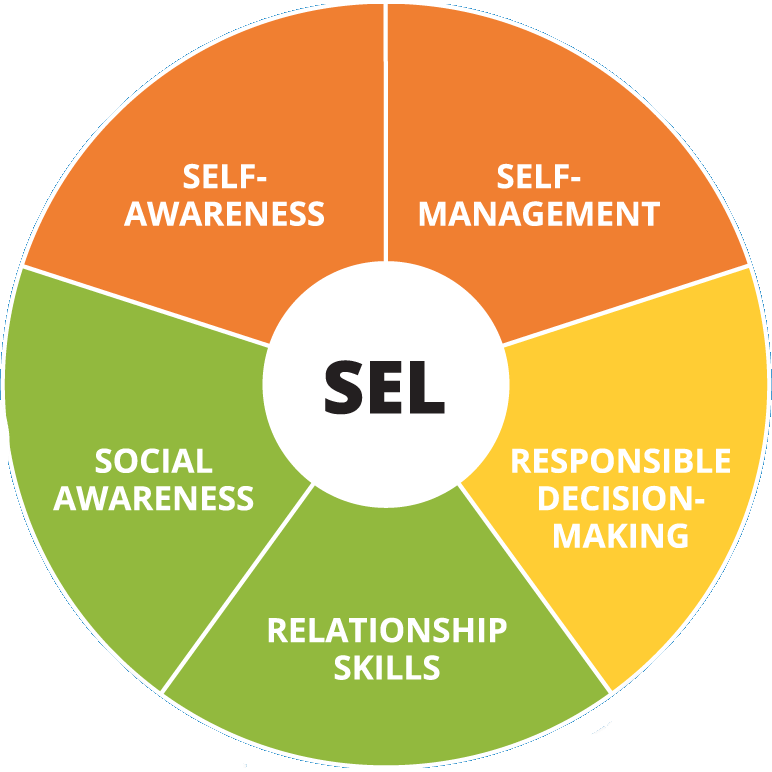SEL-K2.SeM
 SeM Self-Management SeM Self-Management
Narrative
The ability to successfully regulate one's emotions, thoughts, and behaviors in different situations effectively managing stress, controlling impulses, and motivating oneself. The ability to set and work toward personal and academic goals.
Indicators
- IC Impulse Control Demonstrate self-control in a variety of settings.
(e.g. differentiate between needs and wants, follow school-wide behavior expectations)
- SM Stress Management Define stress.
- SD Self-Discipline Identify what it means to be responsible and list personal responsibilities.
- S-M Self-Management Utilize self-talk for the purpose of self-motivation.
- GS Goal Setting Identify goals for academic success and classroom behavior.
- OS Organizational Skills Utilize prescribed routines to understand physical and mental organizational strategies.
Proficiency Scale
I can ...
1 Beginning
... with help, demonstrates a partial understanding of some of the simpler details and processes (Score 2.0 content) and some of the more complex ideas and processes (Score 3.0 content).
2 Developing
... demonstrates no major errors or omissions regarding the simpler details and processes but exhibits major errors or omissions regarding the more complex ideas and processes (Score 3.0 content).
Skills:
- define self-control
- define stress
- define responsibility
- use positive self-talk
- name behavior goal(s)
- name school work goal(s)
- follow routines and procedures for organization
3 Proficient
“The Standard.”
... demonstrates no major errors or omissions regarding any of the information and processes that were end of instruction expectations.
- show self-control with my behavior.
- name my responsibilities.
- use strategies to calm down by myself especially with reminders from adults.
- set a goal and work to improve at my goal.
- follow school and classroom rules and expectations especially with reminders from adults.
4 Advanced
... demonstrates in-depth inferences and applications regarding more complex material that go beyond end of instruction expectations.
- also use self-management strategies outside of the school setting (e.g. at home and in the community).
Resources
Vocabulary
- self-control
- expectations
- stress
- responsibilities
- positive self-talk
- self-motivation
- goals
- routines/procedures
- organization
Websites
- Title of website with a URL to open in a new window
| BPS District Social Emotional Learning Book








